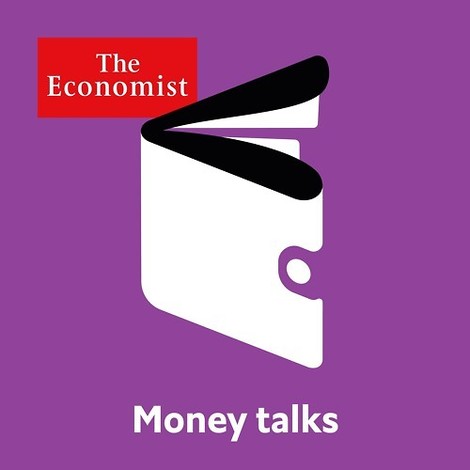Your podcast discovery platform
Curious minds select the most fascinating podcasts from around the world. Discover hand-piqd audio recommendations on your favorite topics.

piqer for: Boom and bust Deep Dives Global finds Globalization and politics
Will Kherbek is the writer of the novels Ecology of Secrets (2013) and ULTRALIFE (2016), both published by Arcadia Missa. His Ph.D. was granted by the University of London in 2014. In 2018, the poetry collections 26 Ideologies for Aspiring Ideologists (If a Leaf Falls Press) and Everyday Luxuries (Arcadia Missa) were published. Kherbek is also the writer of the essay "Technofeudalism and the Tragedy of the Commons" (2016) which appeared in the debut issue of Doggerland's journal. The essay considers the role of information in the writing of the Nobel Prize winning economist, Elinor Ostrom, in relation to the concept of the "tragedy of the commons" as formulated by Garrett Hardin. He has written about high frequency trading and finance for the award-winning German language publication, BLOCK, and has consulted and appeared at events with the conveners of the Alternative School of Economics and Rabbits Road Institute in London. His art journalism has appeared widely in publications including Flash Art, Spike Magazine, MAP Magazine, Berlin Art Link, Rhizome.org, and others.
Monopolies And "Capitalist Dystopia"
One doesn’t expect to hear the phrase “capitalist dystopia” uttered without irony by a reporter for The Economist; nevertheless, that is the troubling diagnosis of Patrick Fowles in this “Money Talks” podcast. Fowles is speaking specifically about the advance of monopolies in a number of sectors of the American economy. He recounts a recent trip to America to attend a conference and lists the monopolies and quasi-monopolies he interacts with on his brief trip. The numbers speak for themselves: Apple, 62% marketshare; the three main credit card providers, American Express, Visa, and Mastercard, 95% marketshare; Google, 60% of browser marketshare. These aren’t even the most shocking numbers he cites.
The picture gets even bleaker when Fowles recites a list of the largest corporations in America and reveals that 17% of the shares in these companies are owned by one or another of three investment firms: Blackrock, State Street, and Vanguard. One could extend this analysis further and consider that investment houses like the aforementioned big three, and the companies they deal with, are rated for creditworthiness by three firms: Moody’s, Standard and Poor’s, and Fitch Group (collectively, 95% marketshare). Such levels of concentration are not only staggering, but Fowles suggests, pernicious.
The size of the problem, like the size of the companies that are creating it, is only growing, but Fowles podcast host Simon Long, The Economist's International Editor, provide both a genealogy of an incipient crisis as well as a mercifully plausible blueprint for solving it. Indeed, Fowles suggests, the only true challenge is ensuring that there's sufficient political will to address the crisis. Unlikely? Perhaps, but having listened to this call to arms by market-loving capitalists against a galloping capitalist dystopia, one is left with a genuine sense of hope that anything is possible.
Stay up to date – with a newsletter from your channel on Boom and bust.
